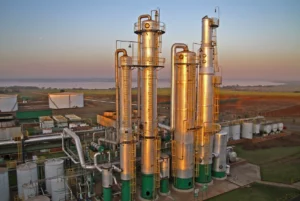Brazil’s potential to sustain high ethanol exports into 2024 hinges on its increasing corn ethanol production, aligning with the record volumes seen in the previous year.
In 2023, Brazil shipped 2.558 billion liters of ethanol, marking a modest 2.5% growth from 2022.
This trend nears the 2020 peak, illustrating the country’s robust position in the renewable fuel market, according to insights from Argus.
The surge in corn ethanol production plays a pivotal role in meeting international demand, explained Argus’s Amance Boutin.

India’s growing interest in Brazilian ethanol, aimed at diversifying its energy mix, underscores Brazil’s strategic market positioning.
In addition, South Korea remains the primary consumer, absorbing 30% of Brazil’s ethanol exports, followed by India and Saudi Arabia.
The demand from Asia, partly for industrial alcohol, and Europe’s significant intake via Dutch ports highlight the global appeal of Brazilian ethanol.
Logistics and global reputation
Enhancements in transportation logistics have played a crucial role, with some mills utilizing the Logum pipeline for efficient transport.
This logistical edge, coupled with efforts to improve the international reputation of corn ethanol, positions Brazil favorably in the global market.
The country’s two-crop system per year minimizes the carbon footprint, bolstering the sustainability profile of Brazilian ethanol.
However, Europe’s protective measures could pose challenges to Brazil’s ethanol exports.
The domestic market’s performance will also influence the need for exports, balancing international and local demand dynamics.

